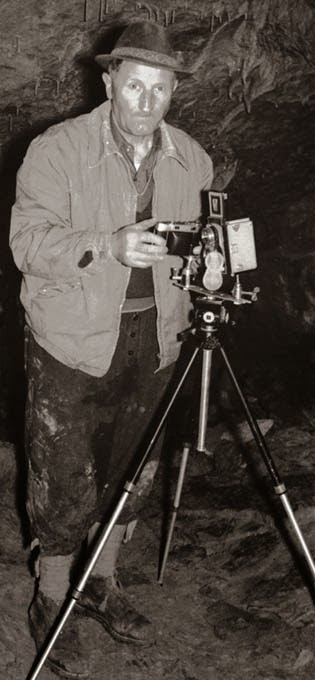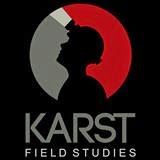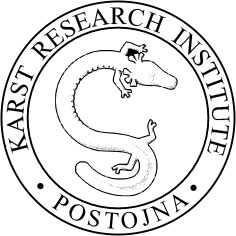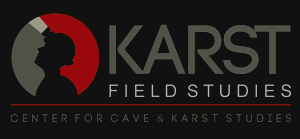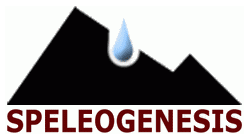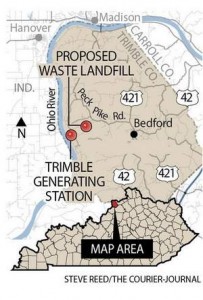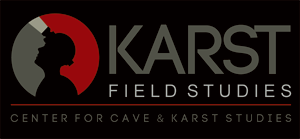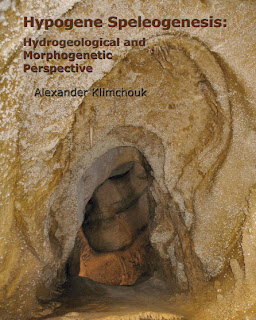The France HABE Prize is awarded by the Department of Karst and the Cave Protection of the International Union of Speleology (UIS).
Its purpose is to promote the protection of karst and caves for generations to come. Their natural legacy are proven sources of increasingly rich information about the history of our planet and humanity, enabling people to act more thoughtfully, efficiently, and sustainably for the future of our environment.
Nominations must reach by, May 20 2014.
Click here for more information
Showing posts with label karst. Show all posts
Showing posts with label karst. Show all posts
Friday, April 11, 2014
Last Call - France HABE Prize
Email ThisBlogThis!Share to TwitterShare to FacebookShare to Pinterest
Thursday, April 3, 2014
Karst Field Studies Course Announcement Summer 2014
The Department of Geography and Geology at Western Kentucky University and its partners encourage you to participate in the summer 2014 Karst Field Studies Program at and near Mammoth Cave National Park . Tentative courses this summer will include:
- Karst Geology, June 1-7, Dr. Art Palmer
- Exploration of the Mammoth Cave Area, June 8-14, Dr. Stanley Sides
- Cave Survey and Cartography, June 15-21, Dr. Pat Kambesis, with assistance from Mr. Howard Kalnitz
Take a class for fun as non-credit workshops OR courses may also be taken for graduate, undergraduate, or continuing education credit.
For more information about the program, courses, how to register, and instructors, please visit karstfieldstudies.com. But hurry, the deadline to reserve you spot is approaching fast…Friday, May 9. Space is limited.
If you have any questions please contact the Karst Field Studies Director, Dr. Leslie North, at [email protected].
"Like" us on Facebook at Karst Field Studies (WKU/Mammoth Cave).
Hope to see you this summer!
- Karst Geology, June 1-7, Dr. Art Palmer
- Exploration of the Mammoth Cave Area, June 8-14, Dr. Stanley Sides
- Cave Survey and Cartography, June 15-21, Dr. Pat Kambesis, with assistance from Mr. Howard Kalnitz
Take a class for fun as non-credit workshops OR courses may also be taken for graduate, undergraduate, or continuing education credit.
For more information about the program, courses, how to register, and instructors, please visit karstfieldstudies.com. But hurry, the deadline to reserve you spot is approaching fast…Friday, May 9. Space is limited.
If you have any questions please contact the Karst Field Studies Director, Dr. Leslie North, at [email protected].
"Like" us on Facebook at Karst Field Studies (WKU/Mammoth Cave).
Hope to see you this summer!
Email ThisBlogThis!Share to TwitterShare to FacebookShare to Pinterest
Monday, April 15, 2013
21 st International Karstological School: Classical Karst: Hypogene Speleogenesis (Between theory and reality...)
Since 1993, International Karstological Schools have been organised, covering many aspects of karst research. The basic idea of the School has been to present the state of the art in selected topics and promote discussion between participants via set of lectures, poster sessions and related field trips to the area of Slovene Classical karst.
In the last decade, hypogene speleologenetic processes have attracted attention of speleological community. Many previously epigenic caves have been reinterpreted as hypogene. Some basic publications on the topic have triggered doubts and debates because similar cave patterns and wall rock features considered as hypogene can be formed also under other conditions. Therefore, the aim of the 21'st IKS is to present basic hydrogeological and chemical principles and processes of hypogene speleogenesis as well as geological conditions leading to it. Special attention will be paid to the geometry of cave passages and wall rock features which are often interpreted as hypogene, but could have as well formed otherwise, such as in meteoric flood-water conditions or by dissolution in contact with sediment.
In the last decade, hypogene speleologenetic processes have attracted attention of speleological community. Many previously epigenic caves have been reinterpreted as hypogene. Some basic publications on the topic have triggered doubts and debates because similar cave patterns and wall rock features considered as hypogene can be formed also under other conditions. Therefore, the aim of the 21'st IKS is to present basic hydrogeological and chemical principles and processes of hypogene speleogenesis as well as geological conditions leading to it. Special attention will be paid to the geometry of cave passages and wall rock features which are often interpreted as hypogene, but could have as well formed otherwise, such as in meteoric flood-water conditions or by dissolution in contact with sediment.
Info: http://iks.zrc-sazu.si/en/
Email ThisBlogThis!Share to TwitterShare to FacebookShare to Pinterest
Wednesday, December 26, 2012
2013 WKU/Mammoth Karst Field Studies Program
Here's the course list announcement for 2013:
The Hoffman Environmental Research Institute through its Center for Cave and Karst Studies and in cooperation with the Mammoth Cave International Center for Science and Learning and Western Kentucky University, are pleased to announce the launch of the Summer 2013 Karst Field Studies Program. Courses this summer will include:
For more information about the program, courses, how to register, and instructors, please visit www.karstfieldstudies.com. While visiting the website be sure to also check out the 'Scholarships' tab for information about the Nick Crawford Karst Education Scholarship, a competitive award designed to offer financial assistance for attending a course.
If you have any questions please contact the Karst Field Studies Director, Dr. Leslie North, at [email protected].
The Hoffman Environmental Research Institute through its Center for Cave and Karst Studies and in cooperation with the Mammoth Cave International Center for Science and Learning and Western Kentucky University, are pleased to announce the launch of the Summer 2013 Karst Field Studies Program. Courses this summer will include:
- Karst Geology, June 2-8, Dr. Art Palmer
- Karst Geophysics, June 9-15, Dr. Lewis Land
- Cave Photography, June 10-14, Dr. Dave Bunnell
- Karst Hydrology June 17-21, Drs. William White and Nicholas Crawford
- Cave Biology and Ecosystems, June 17-21, Dr. Dave Ashley
For more information about the program, courses, how to register, and instructors, please visit www.karstfieldstudies.com. While visiting the website be sure to also check out the 'Scholarships' tab for information about the Nick Crawford Karst Education Scholarship, a competitive award designed to offer financial assistance for attending a course.
If you have any questions please contact the Karst Field Studies Director, Dr. Leslie North, at [email protected].
Email ThisBlogThis!Share to TwitterShare to FacebookShare to Pinterest
Wednesday, December 19, 2012
Call for abstracts -- National Cave and Karst Management Symposium
The National Cave and Karst Management Symposium (NCKMS) is now accepting abstracts for its next meeting, which will be held on 4-8 November 2013 at the National Cave and Karst Research Institute (NCKRI) in Carlsbad, New Mexico.
This is the 20th of this internationally attended conference series.
For details about the conference and to submit an abstract, go to https://sites.google.com/site/nckms2013/home.
Email ThisBlogThis!Share to TwitterShare to FacebookShare to Pinterest
Tuesday, December 18, 2012
New paper on karstic flow conduits
A new paper is published in the current issue of "Speleogenesis and Evolution of karst aquifers":
Boudinet, P. 2012. A statistical model of karstic flow conduits.
Speleogenesis & Evolution of Karst Aquifers, 12: 9-16
A statistical model of karstic flow conduits, based on statistical physics of random walks, is developed. It allows us to compute the mean depth of flow conduits versus the distance from the inlet and versus the dip. It provides results that are in good qualitative agreement with previous results of other authors: the mean depth increases, slowly, with the distance, and it increases, not in a regular fashion, with the dip. The variability of the depth of the conduits, possibly leading to some conduits far from the water table, and the fact that well developed conduits are scarce or not, is linked to the probability of exploitation of the different fractures, the potentially permeable bedding planes, faults and joints in the karstifiable rock. On the basis of this result, we propose that interesting cavities - from the point of view of caving and cave diving - are found only in a small range of those exploitation probabilities. Finally, we emphasize the non-euclidean properties of flow conduits; especially, that many shortest pathways may exist and that a straight line is not usually the shortest pathway that actually develops between inlet and outlet.
To download the full paper, please, follow this link:
http://www.speleogenesis.info/journal/publication.php?id=11251
Boudinet, P. 2012. A statistical model of karstic flow conduits.
Speleogenesis & Evolution of Karst Aquifers, 12: 9-16
A statistical model of karstic flow conduits, based on statistical physics of random walks, is developed. It allows us to compute the mean depth of flow conduits versus the distance from the inlet and versus the dip. It provides results that are in good qualitative agreement with previous results of other authors: the mean depth increases, slowly, with the distance, and it increases, not in a regular fashion, with the dip. The variability of the depth of the conduits, possibly leading to some conduits far from the water table, and the fact that well developed conduits are scarce or not, is linked to the probability of exploitation of the different fractures, the potentially permeable bedding planes, faults and joints in the karstifiable rock. On the basis of this result, we propose that interesting cavities - from the point of view of caving and cave diving - are found only in a small range of those exploitation probabilities. Finally, we emphasize the non-euclidean properties of flow conduits; especially, that many shortest pathways may exist and that a straight line is not usually the shortest pathway that actually develops between inlet and outlet.
To download the full paper, please, follow this link:
http://www.speleogenesis.info/journal/publication.php?id=11251
Email ThisBlogThis!Share to TwitterShare to FacebookShare to Pinterest
Saturday, August 11, 2012
Free E-book: Living With Karst: A Fragile Foundation
Email ThisBlogThis!Share to TwitterShare to FacebookShare to Pinterest
Tuesday, August 7, 2012
Free Ebook: Multilingual Caving Dictionary
Email ThisBlogThis!Share to TwitterShare to FacebookShare to Pinterest
Friday, June 8, 2012
PhD position in Neuchatel, Switzerland
Geometry, genesis and hydrodynamic of the Yucatan karstic system
You are a young scientist who wants to work on challenging mathematical and numerical modeling problems having a high societal impact. You do not want to model things that you did not measure.
You are a young scientist who wants to work on challenging mathematical and numerical modeling problems having a high societal impact. You do not want to model things that you did not measure.
You do not want to collect data without doing the modeling. You are not afraid of doing and learning new things. You are able to defend your vision and you know that making a step forward in sciences requires hard work. Ideally, you have a master degree in earth or environmental sciences, computational sciences, physics, or applied mathematics. You have good experimental capabilities and can communicate easily in English.
The stochastic hydrogeology group is a small eclectic team (geologists, engineers, mathematicians) within the University of Neuchatel. We offer a friendly and effective working environment settled in a beautiful landscape of lake and mountains. The University hosts about 4’000 students and is located in the French‐speaking part of Switzerland.
The project (3 years) aims at measuring, understanding and modeling the geometry, genesis and dynamic of groundwater flow in the karstic system of the Yucatan peninsula. The measurements will be performed in Mexico in close collaboration with geophysicists from the Austrian Geological Survey and local scientists. The modeling will include stochastic and deterministic aspects (finite elements).
The stochastic hydrogeology group is a small eclectic team (geologists, engineers, mathematicians) within the University of Neuchatel. We offer a friendly and effective working environment settled in a beautiful landscape of lake and mountains. The University hosts about 4’000 students and is located in the French‐speaking part of Switzerland.
The project (3 years) aims at measuring, understanding and modeling the geometry, genesis and dynamic of groundwater flow in the karstic system of the Yucatan peninsula. The measurements will be performed in Mexico in close collaboration with geophysicists from the Austrian Geological Survey and local scientists. The modeling will include stochastic and deterministic aspects (finite elements).
Uncertainty quantification will play a key role during the whole project. The results will contribute to provide a scientific basis for the protection of marine ecosystems endangered by the possible reinjection of wastewater into the karst due to urban development.
Applications must include a curriculum vitae, a complete academic transcript including undergraduate and graduate courses, copies of diploma/certificates, contact information of 2‐3 potential referees, a short description of research interests, and should be sent to: [email protected] as soon as possible. The selection of the candidates will start in mid‐July, to start as soon as possible but not later than December 2012.
Applications must include a curriculum vitae, a complete academic transcript including undergraduate and graduate courses, copies of diploma/certificates, contact information of 2‐3 potential referees, a short description of research interests, and should be sent to: [email protected] as soon as possible. The selection of the candidates will start in mid‐July, to start as soon as possible but not later than December 2012.
Email ThisBlogThis!Share to TwitterShare to FacebookShare to Pinterest
Monday, March 26, 2012
Carbon and Boundaries in Karst 2013 - Second Circular
A Karst Waters Institute Symposium on
Carbon and Boundaries in Karst
January 7 to 11, 2013
Carlsbad, New Mexico
Background
There is growing interest in the dynamics of both inorganic and organic carbon in karst systems, and especially in the flux of carbon and nutrients between the surface and subsurface and between different components in the karst subsurface. This symposium is about these and other questions connected to carbon in karst and boundaries in karst. It is especially timely both because of rapid advances in the field and the importance of carbon sequestration in global climate change The symposium will highlight recent advances in biology, geology, and hydrology that are helping us understand the dynamics of karst ecosystems, especially with respect to carbon. There will be both invited lectures and contributed posters covering the following topics: The Upper Boundary — Epikarst The Lower Boundary — Phreatic Zone Lateral Inputs — Insurgences Lateral Outputs — Resurgences CO2 — Processing and Storage Organic Carbon — Sources and Quality Synthesis and Large Scale Models.
As is the tradition with KWI meetings, the symposium will be aggressively interdisciplinary and international. More information about KWI and past meetings can be found here.
Email ThisBlogThis!Share to TwitterShare to FacebookShare to Pinterest
Wednesday, March 14, 2012
Trimble cave needs more study, state says
Kentucky environmental regulators did not buy into LG&E’s claim that a cave on their Trimble County property is not a cave at all, merely a “cave-like feature,” as The Courier-Journal reported on Feb. 22. But the Kentucky Division of Waste Management has given LG&E more time to study the situation.
Until Nov. 15, actually.
Solid Waste Branch director Ron Gruzesky told me today that he sent a letter to LG&E last week (while I was on furlough), instructing the company on what it needs to do next if it wants to secure a permit to dump large quantities of coal-burning waste in a landfill it seeks to build atop the cave. Trouble is, a cave protection law appears to prevent any such destruction.
State inspectors, who took the photo at lower right, heard water in the cave and documented cave live there during a visit last year. And now they cite earlier cave explorers who saw running water there and want the company to map extent of the cave and document the running water.
Until Nov. 15, actually.
Solid Waste Branch director Ron Gruzesky told me today that he sent a letter to LG&E last week (while I was on furlough), instructing the company on what it needs to do next if it wants to secure a permit to dump large quantities of coal-burning waste in a landfill it seeks to build atop the cave. Trouble is, a cave protection law appears to prevent any such destruction.
State inspectors, who took the photo at lower right, heard water in the cave and documented cave live there during a visit last year. And now they cite earlier cave explorers who saw running water there and want the company to map extent of the cave and document the running water.
Email ThisBlogThis!Share to TwitterShare to FacebookShare to Pinterest
Wednesday, February 29, 2012
NCKRI job opening announcement: searching for a fund raiser
Dear Friends,
The National Cave and Karst Research Institute (NCKRI) is hiring a new Advancement Director. Ann Dowdy has done a wonderful job establishing the foundation of NCKRI's Advancement Program, but needs to leave for personal reasons. She is able to generously give us substantial advance notice to minimize the time that the position will be vacant. Her successor will continue fund raising for NCKRI and marketing its programs.
I'm sending you this message because of your interest in caves, karst, and NCKRI. While many of you won't be interested in the job for yourselves, please forward this note to anyone you think may be interested. You are also welcome to post it on websites and in newsletters. The announcement has also been sent to newspapers and various websites. We are accepting applications until 26 April 2012.
The job announcement is posted at http://www.nmt.edu/images/stories/hr/pdfs/advdirnckri12222-020.pdf. NCKRI is administered by the New Mexico Institute of Mining and Technology. The employment application form is at http://www.nmt.edu/images/stories/hr/pdfs/employment_nmt.pdf, but it must be mailed, not e-mailed, along with resumes and any other supporting material. The job will be stationed at NCKRI headquarters in Carlsbad, New Mexico. If you have questions, please contact Karla Montoya at [email protected] or (575) 835-6962. Caving experience or advanced knowledge of caves and karst, while certainly welcome and helpful, are not required for this job. The Advancement Director will play a vital role in generating funds and support to continue building NCKRI's staff and programs, which includes assisting NCKRI's friends and partners whenever possible.
Thank you,
George Veni, Ph.D.
Executive Director National Cave and Karst Research Institute
400-1 Cascades Avenue
Carlsbad, New Mexico 88220-6215 USA
Office: 575-887-5517
Fax: 575-887-5523
[email protected]
www.nckri.org
I'm sending you this message because of your interest in caves, karst, and NCKRI. While many of you won't be interested in the job for yourselves, please forward this note to anyone you think may be interested. You are also welcome to post it on websites and in newsletters. The announcement has also been sent to newspapers and various websites. We are accepting applications until 26 April 2012.
The job announcement is posted at http://www.nmt.edu/images/stories/hr/pdfs/advdirnckri12222-020.pdf. NCKRI is administered by the New Mexico Institute of Mining and Technology. The employment application form is at http://www.nmt.edu/images/stories/hr/pdfs/employment_nmt.pdf, but it must be mailed, not e-mailed, along with resumes and any other supporting material. The job will be stationed at NCKRI headquarters in Carlsbad, New Mexico. If you have questions, please contact Karla Montoya at [email protected] or (575) 835-6962. Caving experience or advanced knowledge of caves and karst, while certainly welcome and helpful, are not required for this job. The Advancement Director will play a vital role in generating funds and support to continue building NCKRI's staff and programs, which includes assisting NCKRI's friends and partners whenever possible.
Thank you,
George Veni, Ph.D.
Executive Director National Cave and Karst Research Institute
400-1 Cascades Avenue
Carlsbad, New Mexico 88220-6215 USA
Office: 575-887-5517
Fax: 575-887-5523
[email protected]
www.nckri.org
Email ThisBlogThis!Share to TwitterShare to FacebookShare to Pinterest
Tuesday, February 28, 2012
20th International Karstological School "Classical karst" Karst Forms and Processes
The web page of 20th International Karstological School is now accessible at:
http://iks.zrc-sazu.si/en/index.html
There you can find basic information on the upcomming school, archives of the past schools, REGISTRATION FORM and PAYMENT DETAILS.
http://iks.zrc-sazu.si/en/index.html
There you can find basic information on the upcomming school, archives of the past schools, REGISTRATION FORM and PAYMENT DETAILS.
Email ThisBlogThis!Share to TwitterShare to FacebookShare to Pinterest
Monday, February 27, 2012
Cave and karst student scholarships
 | The Western Kentucky University Hoffman Environmental Research Institute is pleased to offer two new award competitions for karst education. |
1. The Nick Crawford Karst Education Scholarship will provide financial support for one student per year to attend a weeklong course in WKU's 2012 Karst Field Studies program (http://karstfieldstudies.com) as a non-credit workshop or for university credit at the Western Kentucky University Karst Field Studies Program. The successful applicant will receive: 1) reimbursement on round trip travel costs to the course location up to $1000, 2) a waiver of the fees if taking the course for a workshop ($500) or $500 credited to tuition for those taking a course for graduate or undergraduate credit, 3) free shared bunkhouse accommodation at the Cave Research Foundation's Hamilton Valley Research Station near Mammoth Cave National Park where most courses are held, or $100 credit toward shared accommodation in the Missouri Ozark's or New Mexico Geophysics Courses, and 4) a $150 stipend. For an application and complete information please see http://karstfieldstudies.com/scholarship.php. The scholarship is made possible with the generous support of the National Cave and Karst Research Institute, the Stan and Kay Sides Environmental Education Fund, and the United Nations Educational, Scientific and Cultural Organization.
2. Student Research Grant for Karst Groundwater Flow Studies
The Hoffman Institute's Crawford Hydrology Laboratory is pleased to announce a new initiative to help support student research. The Laboratory will provide an award two times per year of up to $1,000 each through a proposal competition to offer undergraduate and/or graduate research support for fluorescence laboratory products and services used in groundwater tracing investigations.
Awards will cover up to $700 for laboratory analytical costs, up to $300 applied to dye tracing supplies such as charcoal receptors, fluorescent dye, and mailing of samples.
Any full-time undergraduate or graduate student enrolled at an accredited university with an endorsement from a full-time faculty member of that university. Proposals from high school students may be considered with additional supporting documentation as described in the application packet. Applicants are eligible for the award once per calendar year.
Proposals should be limited to projects that can be completed within 12 months from the start of the project. Awards are limited to a maximum of $1,000 per project.
For application details please see http://hoffmanworld.org/dyetracing2/?page_id=579.
Email ThisBlogThis!Share to TwitterShare to FacebookShare to Pinterest
Thursday, February 23, 2012
Summer 2012 Karst Field Studies Program
- Exploration of Mammoth Cave, June 4-10
- Techniques in Karst Groundwater Investigations, June 6-8
- Karst Hydrogeology of the Ozarks, June 10-16
- Cave Archaeology, June 11-16
- Cave Survey and Cartography, June 17-23
- Application of Geophysical Methods to Karst Terrains, June 16-22
For more information about the program, courses, how to register, and instructors, please visit www.karstfieldstudies.com. While visiting the website be sure to also check out the "Scholarships" tab for information about Nick Crawford Karst Education Scholarship, a competitive award designed to offer financial assistance for attending a course.
If you have any questions please contact the 2012 Karst Field Studies Director, Dr. Leslie North, at [email protected].
Email ThisBlogThis!Share to TwitterShare to FacebookShare to Pinterest
Friday, February 17, 2012
Tourism and Karst Areas magazine 2011 Vol. 4 (n°2)
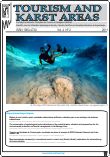 | A new edition of the Brazilian Tourism and Karst Areas magazine, (formerly known as Pesquisas em Turismo e Paisagens Cátsticas) is available. |
Individual articles:
- Efeitos do uso turístico sobre cavidades subterrâneas artificiais: subsídios para o uso antrópico de sistemas subterrâneos; Leopoldo Ferreira de Oliveira Bernardi, Marconi Souza-Silva & Rodrigo Lopes Ferreira
- The conservation of speleological tourist attractions in the central Amazon: situation and perspectives for the environmental protection and tourist management in the Maroaga Cave; João Rodrigo Leitão dos Reis, Julio César Rodríguez Tello, Alessandro Camargo Angelo & Christina Fischer
- Turismo em Unidades de Conservação: resultados do plano de manejo da RPPN Fazenda Cabeceira do Prata - Jardim - MS; Luiza Spengler Coelho, Maria Caroline Moron Urt, Samuel Duleba & Vinicius Batistelli Lemos
- Macroinvertebrate community in recreational areas in a karst river (Bonito, Brazil): implications for biomonitoring of tourist activities; Suzana Cunha Escarpinati, Fabio de Oliveira Roque, Paulino Barroso Medina-Jr & Josué Raizer
Email ThisBlogThis!Share to TwitterShare to FacebookShare to Pinterest
Thursday, February 2, 2012
Second edition of the "Hypogene Speleogenesis" book
The National Cave and Karst Research Institute (NCKRI) has released the second edition of the book "Hypogene Speleogenesis: Hydrogeological and Morphogenetic Perspective," originally published in 2007 as NCKRI Special Paper no.1.
The original text has been thoroughly reviewed and corrected for grammar, style, and technical content by Drs. Lewis Land, Patricia Seiser, and George Veni. All revisions are minor.
Here is a direct link to download the book
The original text has been thoroughly reviewed and corrected for grammar, style, and technical content by Drs. Lewis Land, Patricia Seiser, and George Veni. All revisions are minor.
Here is a direct link to download the book
Email ThisBlogThis!Share to TwitterShare to FacebookShare to Pinterest
Wednesday, February 1, 2012
Ghost-Rock Karst Symposium
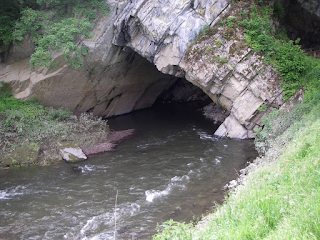 |
| Underground Lesse (Han-sur-Lesse) |
Different points of view on karstogenesis; Fundamental and applied aspects
Han-sur-Lesse, Belgium
From 7 to 11 October 2012
In the paleokarsts from Hainaut (Belgium), you can find weathering features similar to soil features: an "in situ" limestone weathering with residual weathered-rock ("ghost-rock") that keeps its initial volume. Geological features like chert beds, stratification, and joints filled with calcite veins, remain although they present higher porosity. The weathering follows the joints and moves laterally by weathering fronts which can isolate intact blocks. We have given the name of "ghost-rock" to those features. The morphological expressions of ghost-rocks consist in corridors situated on vertical joints which have conducted aggressive water in a quiet phreatic zone and pseudoendokarstic features totally inserted in the unweathered bedrock.
http://sites.google.com/site/ghostrockkarstsymposium/
Email ThisBlogThis!Share to TwitterShare to FacebookShare to Pinterest
Monday, January 30, 2012
National Cave and Karst Research Institute 2010-2011 Annual Report
View and/or download the National Cave and Karst Research Institute 2010-2011 Annual Report
(PDF 3.6 MB)
(PDF 3.6 MB)
Source: http://www.nckri.org
Email ThisBlogThis!Share to TwitterShare to FacebookShare to Pinterest
Saturday, January 28, 2012
Karst-O-Rama July 20-22, 2012
Greater Cincinnati Grotto is putting the “Karst” back into Karst-O-Rama for our 20th year at Great Saltpetre Cave Preserve in Mt. Vernon, KY!
Pre-registration is now open!! The first 50 adults to pre-register will be entered into a drawing for a nice carbide lamp (pics coming soon) so don’t delay, register today!!
Click here to open the mail-in form
Click here to Register Online through PayPal!
Registration is limited to NSS/Grotto members only with the option to sponsor up to a total of three (3) non-member guests. Come enjoy a variety of cave trips and many-family friendly activities! Visit our website: http://karstorama.com and like us on facebook for more info and updates.
Do you have old pictures (you know, from before we all went digital)? Amber Yuellig is collecting all these old pieces of our KOR history. So dig through your closets and this time, pull out all those skeletons!!! And send what you can find so that we can celebrate 20 years of Karst-O-Rama!! Contact Amber ([email protected])
Pre-registration is now open!! The first 50 adults to pre-register will be entered into a drawing for a nice carbide lamp (pics coming soon) so don’t delay, register today!!
Click here to open the mail-in form
Click here to Register Online through PayPal!
Registration is limited to NSS/Grotto members only with the option to sponsor up to a total of three (3) non-member guests. Come enjoy a variety of cave trips and many-family friendly activities! Visit our website: http://karstorama.com and like us on facebook for more info and updates.
Do you have old pictures (you know, from before we all went digital)? Amber Yuellig is collecting all these old pieces of our KOR history. So dig through your closets and this time, pull out all those skeletons!!! And send what you can find so that we can celebrate 20 years of Karst-O-Rama!! Contact Amber ([email protected])
Email ThisBlogThis!Share to TwitterShare to FacebookShare to Pinterest
Subscribe to:
Posts (Atom)
Showing posts with label karst. Show all posts
Showing posts with label karst. Show all posts
Friday, April 11, 2014
Last Call - France HABE Prize
The France HABE Prize is awarded by the Department of Karst and the Cave Protection of the International Union of Speleology (UIS).
Its purpose is to promote the protection of karst and caves for generations to come. Their natural legacy are proven sources of increasingly rich information about the history of our planet and humanity, enabling people to act more thoughtfully, efficiently, and sustainably for the future of our environment.
Nominations must reach by, May 20 2014.
Click here for more information
Its purpose is to promote the protection of karst and caves for generations to come. Their natural legacy are proven sources of increasingly rich information about the history of our planet and humanity, enabling people to act more thoughtfully, efficiently, and sustainably for the future of our environment.
Nominations must reach by, May 20 2014.
Click here for more information
Thursday, April 3, 2014
Karst Field Studies Course Announcement Summer 2014
The Department of Geography and Geology at Western Kentucky University and its partners encourage you to participate in the summer 2014 Karst Field Studies Program at and near Mammoth Cave National Park . Tentative courses this summer will include:
- Karst Geology, June 1-7, Dr. Art Palmer
- Exploration of the Mammoth Cave Area, June 8-14, Dr. Stanley Sides
- Cave Survey and Cartography, June 15-21, Dr. Pat Kambesis, with assistance from Mr. Howard Kalnitz
Take a class for fun as non-credit workshops OR courses may also be taken for graduate, undergraduate, or continuing education credit.
For more information about the program, courses, how to register, and instructors, please visit karstfieldstudies.com. But hurry, the deadline to reserve you spot is approaching fast…Friday, May 9. Space is limited.
If you have any questions please contact the Karst Field Studies Director, Dr. Leslie North, at [email protected].
"Like" us on Facebook at Karst Field Studies (WKU/Mammoth Cave).
Hope to see you this summer!
- Karst Geology, June 1-7, Dr. Art Palmer
- Exploration of the Mammoth Cave Area, June 8-14, Dr. Stanley Sides
- Cave Survey and Cartography, June 15-21, Dr. Pat Kambesis, with assistance from Mr. Howard Kalnitz
Take a class for fun as non-credit workshops OR courses may also be taken for graduate, undergraduate, or continuing education credit.
For more information about the program, courses, how to register, and instructors, please visit karstfieldstudies.com. But hurry, the deadline to reserve you spot is approaching fast…Friday, May 9. Space is limited.
If you have any questions please contact the Karst Field Studies Director, Dr. Leslie North, at [email protected].
"Like" us on Facebook at Karst Field Studies (WKU/Mammoth Cave).
Hope to see you this summer!
Monday, April 15, 2013
21 st International Karstological School: Classical Karst: Hypogene Speleogenesis (Between theory and reality...)
Since 1993, International Karstological Schools have been organised, covering many aspects of karst research. The basic idea of the School has been to present the state of the art in selected topics and promote discussion between participants via set of lectures, poster sessions and related field trips to the area of Slovene Classical karst.
In the last decade, hypogene speleologenetic processes have attracted attention of speleological community. Many previously epigenic caves have been reinterpreted as hypogene. Some basic publications on the topic have triggered doubts and debates because similar cave patterns and wall rock features considered as hypogene can be formed also under other conditions. Therefore, the aim of the 21'st IKS is to present basic hydrogeological and chemical principles and processes of hypogene speleogenesis as well as geological conditions leading to it. Special attention will be paid to the geometry of cave passages and wall rock features which are often interpreted as hypogene, but could have as well formed otherwise, such as in meteoric flood-water conditions or by dissolution in contact with sediment.
In the last decade, hypogene speleologenetic processes have attracted attention of speleological community. Many previously epigenic caves have been reinterpreted as hypogene. Some basic publications on the topic have triggered doubts and debates because similar cave patterns and wall rock features considered as hypogene can be formed also under other conditions. Therefore, the aim of the 21'st IKS is to present basic hydrogeological and chemical principles and processes of hypogene speleogenesis as well as geological conditions leading to it. Special attention will be paid to the geometry of cave passages and wall rock features which are often interpreted as hypogene, but could have as well formed otherwise, such as in meteoric flood-water conditions or by dissolution in contact with sediment.
Info: http://iks.zrc-sazu.si/en/
Wednesday, December 26, 2012
2013 WKU/Mammoth Karst Field Studies Program
Here's the course list announcement for 2013:
The Hoffman Environmental Research Institute through its Center for Cave and Karst Studies and in cooperation with the Mammoth Cave International Center for Science and Learning and Western Kentucky University, are pleased to announce the launch of the Summer 2013 Karst Field Studies Program. Courses this summer will include:
For more information about the program, courses, how to register, and instructors, please visit www.karstfieldstudies.com. While visiting the website be sure to also check out the 'Scholarships' tab for information about the Nick Crawford Karst Education Scholarship, a competitive award designed to offer financial assistance for attending a course.
If you have any questions please contact the Karst Field Studies Director, Dr. Leslie North, at [email protected].
The Hoffman Environmental Research Institute through its Center for Cave and Karst Studies and in cooperation with the Mammoth Cave International Center for Science and Learning and Western Kentucky University, are pleased to announce the launch of the Summer 2013 Karst Field Studies Program. Courses this summer will include:
- Karst Geology, June 2-8, Dr. Art Palmer
- Karst Geophysics, June 9-15, Dr. Lewis Land
- Cave Photography, June 10-14, Dr. Dave Bunnell
- Karst Hydrology June 17-21, Drs. William White and Nicholas Crawford
- Cave Biology and Ecosystems, June 17-21, Dr. Dave Ashley
For more information about the program, courses, how to register, and instructors, please visit www.karstfieldstudies.com. While visiting the website be sure to also check out the 'Scholarships' tab for information about the Nick Crawford Karst Education Scholarship, a competitive award designed to offer financial assistance for attending a course.
If you have any questions please contact the Karst Field Studies Director, Dr. Leslie North, at [email protected].
Wednesday, December 19, 2012
Call for abstracts -- National Cave and Karst Management Symposium
The National Cave and Karst Management Symposium (NCKMS) is now accepting abstracts for its next meeting, which will be held on 4-8 November 2013 at the National Cave and Karst Research Institute (NCKRI) in Carlsbad, New Mexico.
This is the 20th of this internationally attended conference series.
For details about the conference and to submit an abstract, go to https://sites.google.com/site/nckms2013/home.
Tuesday, December 18, 2012
New paper on karstic flow conduits
A new paper is published in the current issue of "Speleogenesis and Evolution of karst aquifers":
Boudinet, P. 2012. A statistical model of karstic flow conduits.
Speleogenesis & Evolution of Karst Aquifers, 12: 9-16
A statistical model of karstic flow conduits, based on statistical physics of random walks, is developed. It allows us to compute the mean depth of flow conduits versus the distance from the inlet and versus the dip. It provides results that are in good qualitative agreement with previous results of other authors: the mean depth increases, slowly, with the distance, and it increases, not in a regular fashion, with the dip. The variability of the depth of the conduits, possibly leading to some conduits far from the water table, and the fact that well developed conduits are scarce or not, is linked to the probability of exploitation of the different fractures, the potentially permeable bedding planes, faults and joints in the karstifiable rock. On the basis of this result, we propose that interesting cavities - from the point of view of caving and cave diving - are found only in a small range of those exploitation probabilities. Finally, we emphasize the non-euclidean properties of flow conduits; especially, that many shortest pathways may exist and that a straight line is not usually the shortest pathway that actually develops between inlet and outlet.
To download the full paper, please, follow this link:
http://www.speleogenesis.info/journal/publication.php?id=11251
Boudinet, P. 2012. A statistical model of karstic flow conduits.
Speleogenesis & Evolution of Karst Aquifers, 12: 9-16
A statistical model of karstic flow conduits, based on statistical physics of random walks, is developed. It allows us to compute the mean depth of flow conduits versus the distance from the inlet and versus the dip. It provides results that are in good qualitative agreement with previous results of other authors: the mean depth increases, slowly, with the distance, and it increases, not in a regular fashion, with the dip. The variability of the depth of the conduits, possibly leading to some conduits far from the water table, and the fact that well developed conduits are scarce or not, is linked to the probability of exploitation of the different fractures, the potentially permeable bedding planes, faults and joints in the karstifiable rock. On the basis of this result, we propose that interesting cavities - from the point of view of caving and cave diving - are found only in a small range of those exploitation probabilities. Finally, we emphasize the non-euclidean properties of flow conduits; especially, that many shortest pathways may exist and that a straight line is not usually the shortest pathway that actually develops between inlet and outlet.
To download the full paper, please, follow this link:
http://www.speleogenesis.info/journal/publication.php?id=11251
Saturday, August 11, 2012
Tuesday, August 7, 2012
Friday, June 8, 2012
PhD position in Neuchatel, Switzerland
Geometry, genesis and hydrodynamic of the Yucatan karstic system
You are a young scientist who wants to work on challenging mathematical and numerical modeling problems having a high societal impact. You do not want to model things that you did not measure.
You are a young scientist who wants to work on challenging mathematical and numerical modeling problems having a high societal impact. You do not want to model things that you did not measure.
You do not want to collect data without doing the modeling. You are not afraid of doing and learning new things. You are able to defend your vision and you know that making a step forward in sciences requires hard work. Ideally, you have a master degree in earth or environmental sciences, computational sciences, physics, or applied mathematics. You have good experimental capabilities and can communicate easily in English.
The stochastic hydrogeology group is a small eclectic team (geologists, engineers, mathematicians) within the University of Neuchatel. We offer a friendly and effective working environment settled in a beautiful landscape of lake and mountains. The University hosts about 4’000 students and is located in the French‐speaking part of Switzerland.
The project (3 years) aims at measuring, understanding and modeling the geometry, genesis and dynamic of groundwater flow in the karstic system of the Yucatan peninsula. The measurements will be performed in Mexico in close collaboration with geophysicists from the Austrian Geological Survey and local scientists. The modeling will include stochastic and deterministic aspects (finite elements).
The stochastic hydrogeology group is a small eclectic team (geologists, engineers, mathematicians) within the University of Neuchatel. We offer a friendly and effective working environment settled in a beautiful landscape of lake and mountains. The University hosts about 4’000 students and is located in the French‐speaking part of Switzerland.
The project (3 years) aims at measuring, understanding and modeling the geometry, genesis and dynamic of groundwater flow in the karstic system of the Yucatan peninsula. The measurements will be performed in Mexico in close collaboration with geophysicists from the Austrian Geological Survey and local scientists. The modeling will include stochastic and deterministic aspects (finite elements).
Uncertainty quantification will play a key role during the whole project. The results will contribute to provide a scientific basis for the protection of marine ecosystems endangered by the possible reinjection of wastewater into the karst due to urban development.
Applications must include a curriculum vitae, a complete academic transcript including undergraduate and graduate courses, copies of diploma/certificates, contact information of 2‐3 potential referees, a short description of research interests, and should be sent to: [email protected] as soon as possible. The selection of the candidates will start in mid‐July, to start as soon as possible but not later than December 2012.
Applications must include a curriculum vitae, a complete academic transcript including undergraduate and graduate courses, copies of diploma/certificates, contact information of 2‐3 potential referees, a short description of research interests, and should be sent to: [email protected] as soon as possible. The selection of the candidates will start in mid‐July, to start as soon as possible but not later than December 2012.
Labels:
job vacancy,
karst,
science,
Switzerland
Location:
Neuchâtel, Zwitserland
Monday, March 26, 2012
Carbon and Boundaries in Karst 2013 - Second Circular
A Karst Waters Institute Symposium on
Carbon and Boundaries in Karst
January 7 to 11, 2013
Carlsbad, New Mexico
Background
There is growing interest in the dynamics of both inorganic and organic carbon in karst systems, and especially in the flux of carbon and nutrients between the surface and subsurface and between different components in the karst subsurface. This symposium is about these and other questions connected to carbon in karst and boundaries in karst. It is especially timely both because of rapid advances in the field and the importance of carbon sequestration in global climate change The symposium will highlight recent advances in biology, geology, and hydrology that are helping us understand the dynamics of karst ecosystems, especially with respect to carbon. There will be both invited lectures and contributed posters covering the following topics: The Upper Boundary — Epikarst The Lower Boundary — Phreatic Zone Lateral Inputs — Insurgences Lateral Outputs — Resurgences CO2 — Processing and Storage Organic Carbon — Sources and Quality Synthesis and Large Scale Models.
As is the tradition with KWI meetings, the symposium will be aggressively interdisciplinary and international. More information about KWI and past meetings can be found here.
Labels:
conference,
geology,
karst,
USA
Location:
Carlsbad, New Mexico 88220, Verenigde Staten
Wednesday, March 14, 2012
Trimble cave needs more study, state says
Kentucky environmental regulators did not buy into LG&E’s claim that a cave on their Trimble County property is not a cave at all, merely a “cave-like feature,” as The Courier-Journal reported on Feb. 22. But the Kentucky Division of Waste Management has given LG&E more time to study the situation.
Until Nov. 15, actually.
Solid Waste Branch director Ron Gruzesky told me today that he sent a letter to LG&E last week (while I was on furlough), instructing the company on what it needs to do next if it wants to secure a permit to dump large quantities of coal-burning waste in a landfill it seeks to build atop the cave. Trouble is, a cave protection law appears to prevent any such destruction.
State inspectors, who took the photo at lower right, heard water in the cave and documented cave live there during a visit last year. And now they cite earlier cave explorers who saw running water there and want the company to map extent of the cave and document the running water.
Until Nov. 15, actually.
Solid Waste Branch director Ron Gruzesky told me today that he sent a letter to LG&E last week (while I was on furlough), instructing the company on what it needs to do next if it wants to secure a permit to dump large quantities of coal-burning waste in a landfill it seeks to build atop the cave. Trouble is, a cave protection law appears to prevent any such destruction.
State inspectors, who took the photo at lower right, heard water in the cave and documented cave live there during a visit last year. And now they cite earlier cave explorers who saw running water there and want the company to map extent of the cave and document the running water.
Labels:
cave protection,
karst,
law,
Trimble cave,
USA
Location:
Kentucky, Verenigde Staten
Wednesday, February 29, 2012
NCKRI job opening announcement: searching for a fund raiser
Dear Friends,
The National Cave and Karst Research Institute (NCKRI) is hiring a new Advancement Director. Ann Dowdy has done a wonderful job establishing the foundation of NCKRI's Advancement Program, but needs to leave for personal reasons. She is able to generously give us substantial advance notice to minimize the time that the position will be vacant. Her successor will continue fund raising for NCKRI and marketing its programs.
I'm sending you this message because of your interest in caves, karst, and NCKRI. While many of you won't be interested in the job for yourselves, please forward this note to anyone you think may be interested. You are also welcome to post it on websites and in newsletters. The announcement has also been sent to newspapers and various websites. We are accepting applications until 26 April 2012.
The job announcement is posted at http://www.nmt.edu/images/stories/hr/pdfs/advdirnckri12222-020.pdf. NCKRI is administered by the New Mexico Institute of Mining and Technology. The employment application form is at http://www.nmt.edu/images/stories/hr/pdfs/employment_nmt.pdf, but it must be mailed, not e-mailed, along with resumes and any other supporting material. The job will be stationed at NCKRI headquarters in Carlsbad, New Mexico. If you have questions, please contact Karla Montoya at [email protected] or (575) 835-6962. Caving experience or advanced knowledge of caves and karst, while certainly welcome and helpful, are not required for this job. The Advancement Director will play a vital role in generating funds and support to continue building NCKRI's staff and programs, which includes assisting NCKRI's friends and partners whenever possible.
Thank you,
George Veni, Ph.D.
Executive Director National Cave and Karst Research Institute
400-1 Cascades Avenue
Carlsbad, New Mexico 88220-6215 USA
Office: 575-887-5517
Fax: 575-887-5523
[email protected]
www.nckri.org
I'm sending you this message because of your interest in caves, karst, and NCKRI. While many of you won't be interested in the job for yourselves, please forward this note to anyone you think may be interested. You are also welcome to post it on websites and in newsletters. The announcement has also been sent to newspapers and various websites. We are accepting applications until 26 April 2012.
The job announcement is posted at http://www.nmt.edu/images/stories/hr/pdfs/advdirnckri12222-020.pdf. NCKRI is administered by the New Mexico Institute of Mining and Technology. The employment application form is at http://www.nmt.edu/images/stories/hr/pdfs/employment_nmt.pdf, but it must be mailed, not e-mailed, along with resumes and any other supporting material. The job will be stationed at NCKRI headquarters in Carlsbad, New Mexico. If you have questions, please contact Karla Montoya at [email protected] or (575) 835-6962. Caving experience or advanced knowledge of caves and karst, while certainly welcome and helpful, are not required for this job. The Advancement Director will play a vital role in generating funds and support to continue building NCKRI's staff and programs, which includes assisting NCKRI's friends and partners whenever possible.
Thank you,
George Veni, Ph.D.
Executive Director National Cave and Karst Research Institute
400-1 Cascades Avenue
Carlsbad, New Mexico 88220-6215 USA
Office: 575-887-5517
Fax: 575-887-5523
[email protected]
www.nckri.org
Labels:
job vacancy,
karst,
NCKRI,
USA
Location:
Carlsbad, New Mexico 88220, Verenigde Staten
Tuesday, February 28, 2012
20th International Karstological School "Classical karst" Karst Forms and Processes
The web page of 20th International Karstological School is now accessible at:
http://iks.zrc-sazu.si/en/index.html
There you can find basic information on the upcomming school, archives of the past schools, REGISTRATION FORM and PAYMENT DETAILS.
http://iks.zrc-sazu.si/en/index.html
There you can find basic information on the upcomming school, archives of the past schools, REGISTRATION FORM and PAYMENT DETAILS.
Monday, February 27, 2012
Cave and karst student scholarships
 | The Western Kentucky University Hoffman Environmental Research Institute is pleased to offer two new award competitions for karst education. |
1. The Nick Crawford Karst Education Scholarship will provide financial support for one student per year to attend a weeklong course in WKU's 2012 Karst Field Studies program (http://karstfieldstudies.com) as a non-credit workshop or for university credit at the Western Kentucky University Karst Field Studies Program. The successful applicant will receive: 1) reimbursement on round trip travel costs to the course location up to $1000, 2) a waiver of the fees if taking the course for a workshop ($500) or $500 credited to tuition for those taking a course for graduate or undergraduate credit, 3) free shared bunkhouse accommodation at the Cave Research Foundation's Hamilton Valley Research Station near Mammoth Cave National Park where most courses are held, or $100 credit toward shared accommodation in the Missouri Ozark's or New Mexico Geophysics Courses, and 4) a $150 stipend. For an application and complete information please see http://karstfieldstudies.com/scholarship.php. The scholarship is made possible with the generous support of the National Cave and Karst Research Institute, the Stan and Kay Sides Environmental Education Fund, and the United Nations Educational, Scientific and Cultural Organization.
2. Student Research Grant for Karst Groundwater Flow Studies
The Hoffman Institute's Crawford Hydrology Laboratory is pleased to announce a new initiative to help support student research. The Laboratory will provide an award two times per year of up to $1,000 each through a proposal competition to offer undergraduate and/or graduate research support for fluorescence laboratory products and services used in groundwater tracing investigations.
Awards will cover up to $700 for laboratory analytical costs, up to $300 applied to dye tracing supplies such as charcoal receptors, fluorescent dye, and mailing of samples.
Any full-time undergraduate or graduate student enrolled at an accredited university with an endorsement from a full-time faculty member of that university. Proposals from high school students may be considered with additional supporting documentation as described in the application packet. Applicants are eligible for the award once per calendar year.
Proposals should be limited to projects that can be completed within 12 months from the start of the project. Awards are limited to a maximum of $1,000 per project.
For application details please see http://hoffmanworld.org/dyetracing2/?page_id=579.
Labels:
education,
geology,
hydrogeology,
karst,
scholarships,
USA
Location:
Verenigde Staten
Thursday, February 23, 2012
Summer 2012 Karst Field Studies Program
- Exploration of Mammoth Cave, June 4-10
- Techniques in Karst Groundwater Investigations, June 6-8
- Karst Hydrogeology of the Ozarks, June 10-16
- Cave Archaeology, June 11-16
- Cave Survey and Cartography, June 17-23
- Application of Geophysical Methods to Karst Terrains, June 16-22
For more information about the program, courses, how to register, and instructors, please visit www.karstfieldstudies.com. While visiting the website be sure to also check out the "Scholarships" tab for information about Nick Crawford Karst Education Scholarship, a competitive award designed to offer financial assistance for attending a course.
If you have any questions please contact the 2012 Karst Field Studies Director, Dr. Leslie North, at [email protected].
Friday, February 17, 2012
Tourism and Karst Areas magazine 2011 Vol. 4 (n°2)
 | A new edition of the Brazilian Tourism and Karst Areas magazine, (formerly known as Pesquisas em Turismo e Paisagens Cátsticas) is available. |
Individual articles:
- Efeitos do uso turístico sobre cavidades subterrâneas artificiais: subsídios para o uso antrópico de sistemas subterrâneos; Leopoldo Ferreira de Oliveira Bernardi, Marconi Souza-Silva & Rodrigo Lopes Ferreira
- The conservation of speleological tourist attractions in the central Amazon: situation and perspectives for the environmental protection and tourist management in the Maroaga Cave; João Rodrigo Leitão dos Reis, Julio César Rodríguez Tello, Alessandro Camargo Angelo & Christina Fischer
- Turismo em Unidades de Conservação: resultados do plano de manejo da RPPN Fazenda Cabeceira do Prata - Jardim - MS; Luiza Spengler Coelho, Maria Caroline Moron Urt, Samuel Duleba & Vinicius Batistelli Lemos
- Macroinvertebrate community in recreational areas in a karst river (Bonito, Brazil): implications for biomonitoring of tourist activities; Suzana Cunha Escarpinati, Fabio de Oliveira Roque, Paulino Barroso Medina-Jr & Josué Raizer
Thursday, February 2, 2012
Second edition of the "Hypogene Speleogenesis" book
The National Cave and Karst Research Institute (NCKRI) has released the second edition of the book "Hypogene Speleogenesis: Hydrogeological and Morphogenetic Perspective," originally published in 2007 as NCKRI Special Paper no.1.
The original text has been thoroughly reviewed and corrected for grammar, style, and technical content by Drs. Lewis Land, Patricia Seiser, and George Veni. All revisions are minor.
Here is a direct link to download the book
The original text has been thoroughly reviewed and corrected for grammar, style, and technical content by Drs. Lewis Land, Patricia Seiser, and George Veni. All revisions are minor.
Here is a direct link to download the book
Wednesday, February 1, 2012
Ghost-Rock Karst Symposium
 |
| Underground Lesse (Han-sur-Lesse) |
Different points of view on karstogenesis; Fundamental and applied aspects
Han-sur-Lesse, Belgium
From 7 to 11 October 2012
In the paleokarsts from Hainaut (Belgium), you can find weathering features similar to soil features: an "in situ" limestone weathering with residual weathered-rock ("ghost-rock") that keeps its initial volume. Geological features like chert beds, stratification, and joints filled with calcite veins, remain although they present higher porosity. The weathering follows the joints and moves laterally by weathering fronts which can isolate intact blocks. We have given the name of "ghost-rock" to those features. The morphological expressions of ghost-rocks consist in corridors situated on vertical joints which have conducted aggressive water in a quiet phreatic zone and pseudoendokarstic features totally inserted in the unweathered bedrock.
http://sites.google.com/site/ghostrockkarstsymposium/
Monday, January 30, 2012
National Cave and Karst Research Institute 2010-2011 Annual Report
View and/or download the National Cave and Karst Research Institute 2010-2011 Annual Report
(PDF 3.6 MB)
(PDF 3.6 MB)
Source: http://www.nckri.org
Saturday, January 28, 2012
Karst-O-Rama July 20-22, 2012
Greater Cincinnati Grotto is putting the “Karst” back into Karst-O-Rama for our 20th year at Great Saltpetre Cave Preserve in Mt. Vernon, KY!
Pre-registration is now open!! The first 50 adults to pre-register will be entered into a drawing for a nice carbide lamp (pics coming soon) so don’t delay, register today!!
Click here to open the mail-in form
Click here to Register Online through PayPal!
Registration is limited to NSS/Grotto members only with the option to sponsor up to a total of three (3) non-member guests. Come enjoy a variety of cave trips and many-family friendly activities! Visit our website: http://karstorama.com and like us on facebook for more info and updates.
Do you have old pictures (you know, from before we all went digital)? Amber Yuellig is collecting all these old pieces of our KOR history. So dig through your closets and this time, pull out all those skeletons!!! And send what you can find so that we can celebrate 20 years of Karst-O-Rama!! Contact Amber ([email protected])
Pre-registration is now open!! The first 50 adults to pre-register will be entered into a drawing for a nice carbide lamp (pics coming soon) so don’t delay, register today!!
Click here to open the mail-in form
Click here to Register Online through PayPal!
Registration is limited to NSS/Grotto members only with the option to sponsor up to a total of three (3) non-member guests. Come enjoy a variety of cave trips and many-family friendly activities! Visit our website: http://karstorama.com and like us on facebook for more info and updates.
Do you have old pictures (you know, from before we all went digital)? Amber Yuellig is collecting all these old pieces of our KOR history. So dig through your closets and this time, pull out all those skeletons!!! And send what you can find so that we can celebrate 20 years of Karst-O-Rama!! Contact Amber ([email protected])
Subscribe to:
Posts (Atom)

